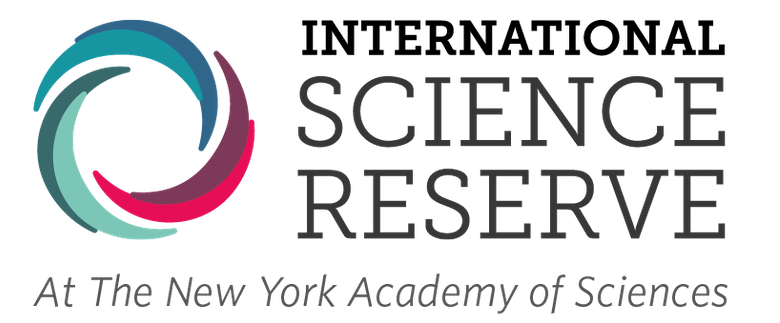Future-Proofing for the Public Good
The International Science Reserve, in coordination with The New York Academy of Sciences, is an ambitious future-proofing initiative for the public good.
Published April 14, 2022
By Nicholas B. Dirks
President and CEO

With its long history of championing science-based solutions to global challenges, the Academy is ideally situated to establish the International Science Reserve (ISR). The ISR will be a network of networks: of communities of experts across scientific disciplines, across sectors, and across borders. The Academy is building the ISR on the model of collaboration we have embodied throughout our 200+ year history as a trusted global convener of scientists across public, private, and academic domains. The ISR reaches across those domains to speed up research and solutions to help prepare for and then ameliorate the effects of complex global crises, such as a great earthquake, a water-borne pandemic, or a cyber-attack.
The goal of the ISR is to quickly connect scientists to scientific resources for faster and better crisis preparedness to help people and protect communities from further disaster. To do this, the ISR fosters collaborative networks and builds experience and expertise within those networks by rehearsing what would happen in a real crisis. These scenario-planning or readiness exercises will help scientists be well equipped in advance to respond to urgent challenges (as this video describes) that are not only possible but likely in future years. Filling an important gap in existing crisis response mechanisms, the ISR will not replace those mechanisms but strengthen them and make them more effective.
In working to prepare communities of scientists and scientific resource providers to respond to many crises, The ISR will be guided by our Executive Board. The ISR builds on the design of the High-Performance Computing Consortium (HPCC) whose work during the Covid-19 outbreak provided enormous and immediate benefits. The ISR expands that work by leveraging not just high computational resources but also specialized talent, labs, databases, and networks of researchers and institutions. It, therefore, relies on our communities of scientific experts, our relationships with industry, federal agencies, and global institutions, our ISR founding partners, as well as ISR members.
The ongoing pandemic and the range of responses around the world have shown us all the value of good preparation. In the scenario planning exercises that are a key step in pre-preparing the ISR science communities, different stakeholders can role-play what they would and could do in the event of a global crisis. The first ISR pilot exercises focus on wildfires, a phenomenon of increasing frequency and magnitude both in the United States and across the world, a direct result of climate change.
The success of the pilot will be measured by the extent to which we can test current wisdom about the resources that scientists need to help protect people and nature during wildfires and to set them up for faster and more equitable recovery afterwards. We can use the valuable information coming out of the wildfire pilot to keep improving processes to identify needed resources in advance, to match scientists to those resources, and to track the projects and lessons that result.
Indeed, science is a process and develops in real-time as we iterate in a constant improvement process, fine-tuning our systems of communication and collaboration. We expect to have the results of our pilot ready in mid-2022 and will announce our next ISR crisis focus areas soon after.
While we have just begun, we are satisfied to see strong indications that a wide range of people and partners are energized by the ISR’s ideas and ambition. We have in place an Executive Board, generous funding partners including IBM, Google, UL, and Pfizer, collaborators such as the National Science Foundation, and we have already recruited over 1,000 scientists into our engaged ISR community.
The wide range of responses we’ve seen to the COVID-19 pandemic, as well as the associated skepticism about scientific expertise, have shown a real need for science-informed leadership in the service of the public good – at both a national and global scale. The pandemic also revealed the need for a scientific appreciation of how existing disparities and inequalities will be worsened by these kinds of crises if public policy does not start by protecting the most vulnerable first. The ISR at The New York Academy of Sciences is stepping up to help drive evidence-based change.
It is only by heeding the hard lessons from the pandemic that the world can truly prepare to respond more effectively when the next global crisis comes. It is the Academy’s ambition for the ISR to strengthen response and recovery efforts to save lives, restore services, and offer hope for better outcomes in the future. The ultimate measure of our success is not the impact of the ISR on the scientific community. The measure of success is the impact on the lives of all people and the health of our planet.
